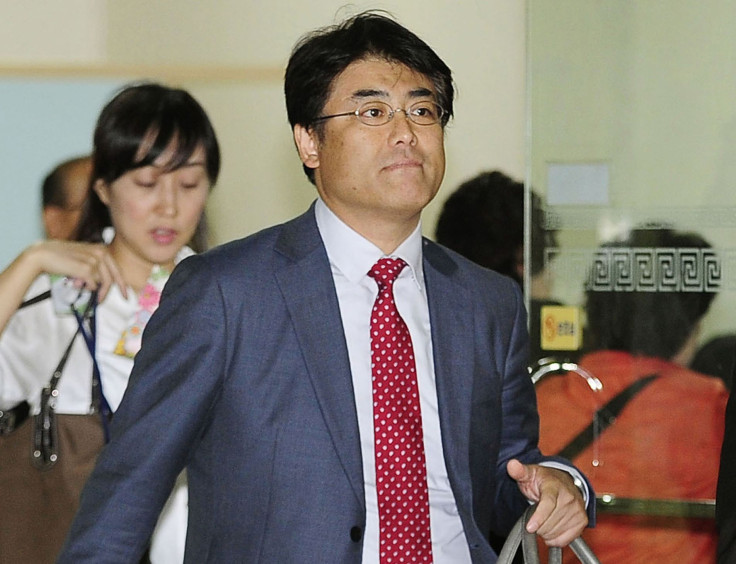South Korea Lifts Travel Ban On Japanese Journalist Accused Of Defaming President

South Korea on Tuesday lifted a travel ban on a Japanese journalist who is on trial for allegedly defaming South Korean President Park Geun-hye. Tatsuya Kato, former Seoul bureau chief of Japan’s conservative Sankei Shimbun newspaper, traveled home on Tuesday after the ban was lifted due to a “humanitarian consideration,” as his mother is unwell and he has not seen his family in over eight months, Agence France-Presse reported.
Kato was not arrested, but had been banned from leaving Korea. He is, however, required to return to court later this month as the trial proceeds. "Honestly, this is only the first step towards the resolution of a situation that defies common sense," he told local media before leaving for Tokyo, according to the AFP.
Kato is being tried over his column published in August regarding Park’s whereabouts on the day when over 300 people were killed after a Korean ferry sank. His column alleged that Park had disappeared for a romantic tryst with a former aide as the ferry sank.
Seoul prosecutors indicted Kato in October, claiming that the article contained “false information.” A senior prosecutor anonymously told the Associated Press that the decision was made after judges concluded that the article was inaccurate, and added that Kato had promised to attend the remaining sessions of the case in Seoul.
Sankei Shimbun welcomed the news of the travel ban being lifted, but condemned Kato’s ongoing trial. "This is a serious infringement of freedom of speech and we demand that the charges be dropped immediately," Sankei Chief Editor Takeshi Kobayashi said in a statement, according to Reuters.
The Japanese government criticized Kato’s indictment, saying that it could hurt press freedom and relations between the countries, but South Korea maintained that it was following its internal legal procedures. "This is irrelevant to [Republic Of Korea] ROK-Japan relations and it is not appropriate to make the issue into a diplomatic problem," Ministry of Foreign Affairs spokesman Noh Gwang-il said, according to Reuters.
The trial comes close to the 70th anniversary of the end of World War II, at a time when relations between the two countries have been strained by what Seoul sees as Japanese leaders’ unwillingness to apologize for their country’s wartime acts during Japan’s occupation of the Korean peninsula.
The issue became more pronounced after the administration of Japanese Prime Minister Shinzo Abe downplayed the country’s practice of forcing women into military brothels during World War II, known as “comfort women.”
The two nations have also seen a growing dispute over a set of tiny islets in the South China Sea, which are controlled by South Korea but claimed by Japan. South Korea’s parliament on Tuesday formally denounced Japan’s territorial claims over the Dokdo islets, known as the Takeshima in Japan, Xinhua reported.
Last month, the two nations held a meeting with China to work toward a trilateral leadership summit to resolve regional disputes. On Tuesday, South Korea and Japan kicked off their first high-level security talks in more than five years, the AFP reported.
© Copyright IBTimes 2024. All rights reserved.





















